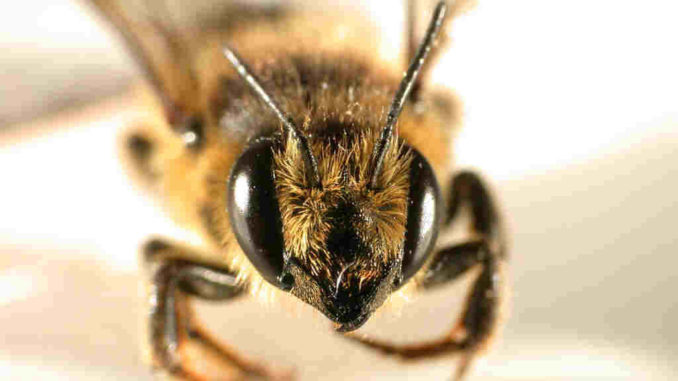
The discovery of Africanized “killer” bees in a condemned house just 30 miles from St. Charles Parish has alarmed officials who say this is the first time the insects have been found this far east. The discovery of Africanized “killer” bees in a condemned house just 30 miles from St. Charles Parish has alarmed officials who say this is the first time the insects have been found this far east.
“This is the first positive confirmation of Africanized bees in a structure in the eastern part of the state,” Agriculture and Forestry Commissioner Bob Odom said.
“Previously, we found the bees in shipping containers, barges and ocean-going vessels entering deepwater ports in the New Orleans area and in traps on the western side of the state.
“These bees were established in a home at 2225 Esteban St. in Arabi, in St. Bernard Parish. The house was being torn down because of damage from Hurricane Katrina.
“A contractor noticed a significant bee problem as the demolition was under way and a beekeeper was called in to help. The problem was so severe the beekeeper had to leave the site and local mosquito control officials were contacted.”
Odom said mosquito control personnel treated the structure to snuff the aggressive bees.
They also collected samples to submit to the Department of Agriculture and Forestry for identification.
“Our bee expert made preliminary positive identification and sent the samples to the USDA’s bee research facility in Tucson for official confirmation,” Odom said
For safety’s sake, he continued, traps to capture any wayward bees will be set in a half-mile radius.
“The traps will be the same kind we’ve used in the western part of the state to monitor the progression of Africanized bees across Louisiana,” he explained. “So far, this is an isolated find in the New Orleans area. But we want to determine if the bees are now established in the southeast region of the state or if this is just a single incident.”
Africanized bees are smaller and more aggressive than the European honeybees commonly raised for honey production. It is their hostile nature that scares many outdoor enthusiasts.
“Because Africanized bees have been labeled ‘killer bees’ for years, there’s an idea around that they are bigger than European honeybees,” Odom said.
“The truth is they’re actually smaller but a lot fiercer.”
The venom in Africanized bees is the same as that in European bees, but Africanized bees will sting in greater numbers leading to a toxic reaction in some cases.
Experts recommend seeking cover immediately to reduce the number of stings in a confrontation with Africanized bees.
Africanized bees acquired the name “killer bees” because they will viciously attack people and animals who unwittingly stray into their territory, often resulting in serious injury or death.
It is not necessary to disturb the hive itself to initiate an attack. In fact, Africanized bees have been know to respond viciously to mundane occurrences, including noises or even vibrations from vehicles, equipment and pedestrians.
Though their venom is no more potent than native honey bees, Africanized bees attack in far greater numbers and pursue perceived enemies for greater distances.
Once disturbed, colonies may remain agitated for 24 hours, attacking people and animals within a range of a quarter mile from the hive.
Africanized bees proliferate because they are less discriminating in their choice of nests than native bees. They also tend to swarm more than honeybees.




Be the first to comment